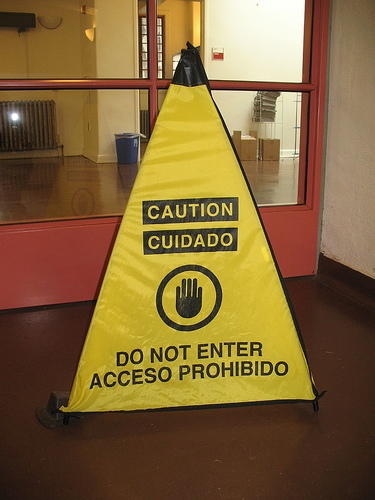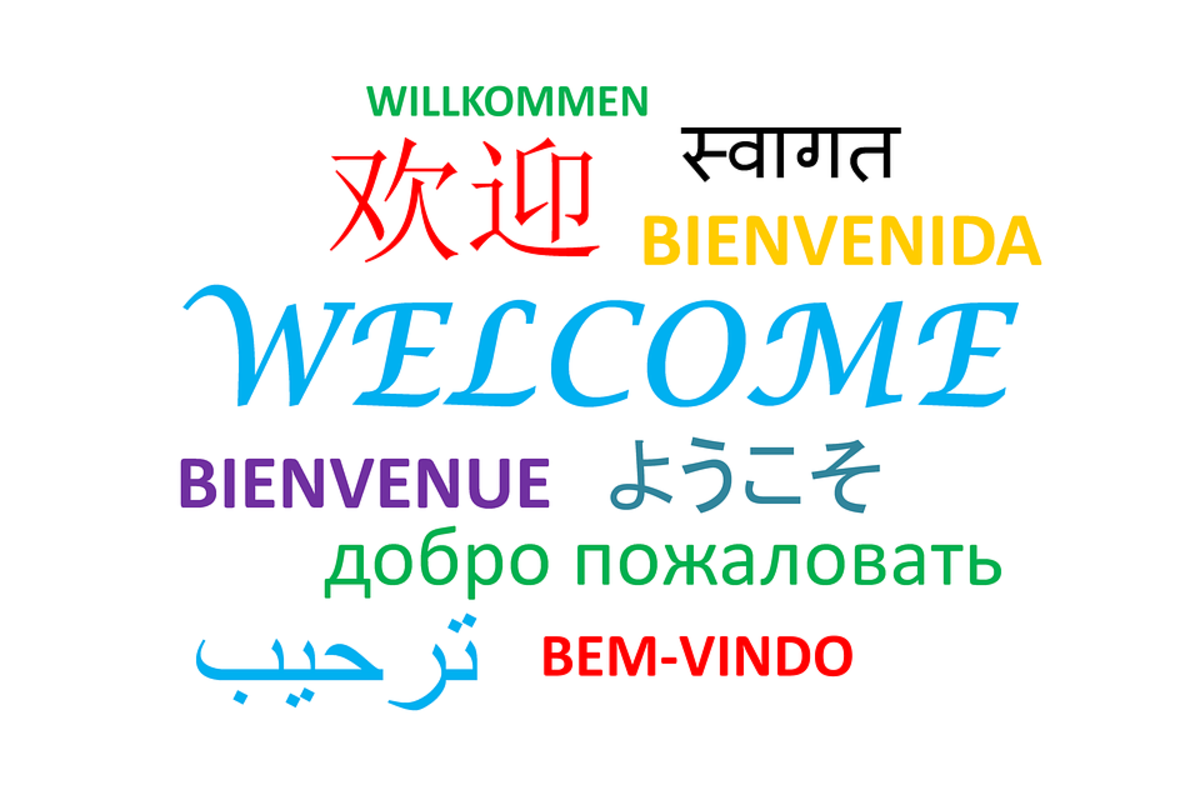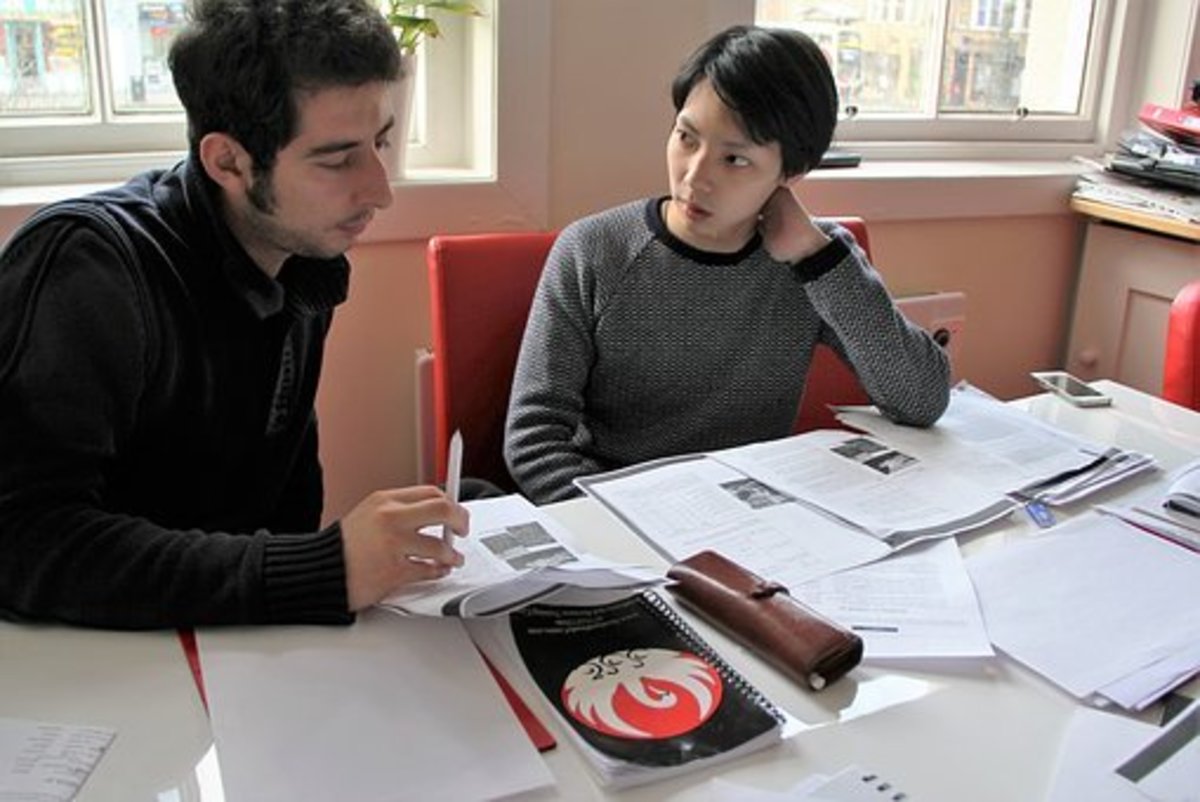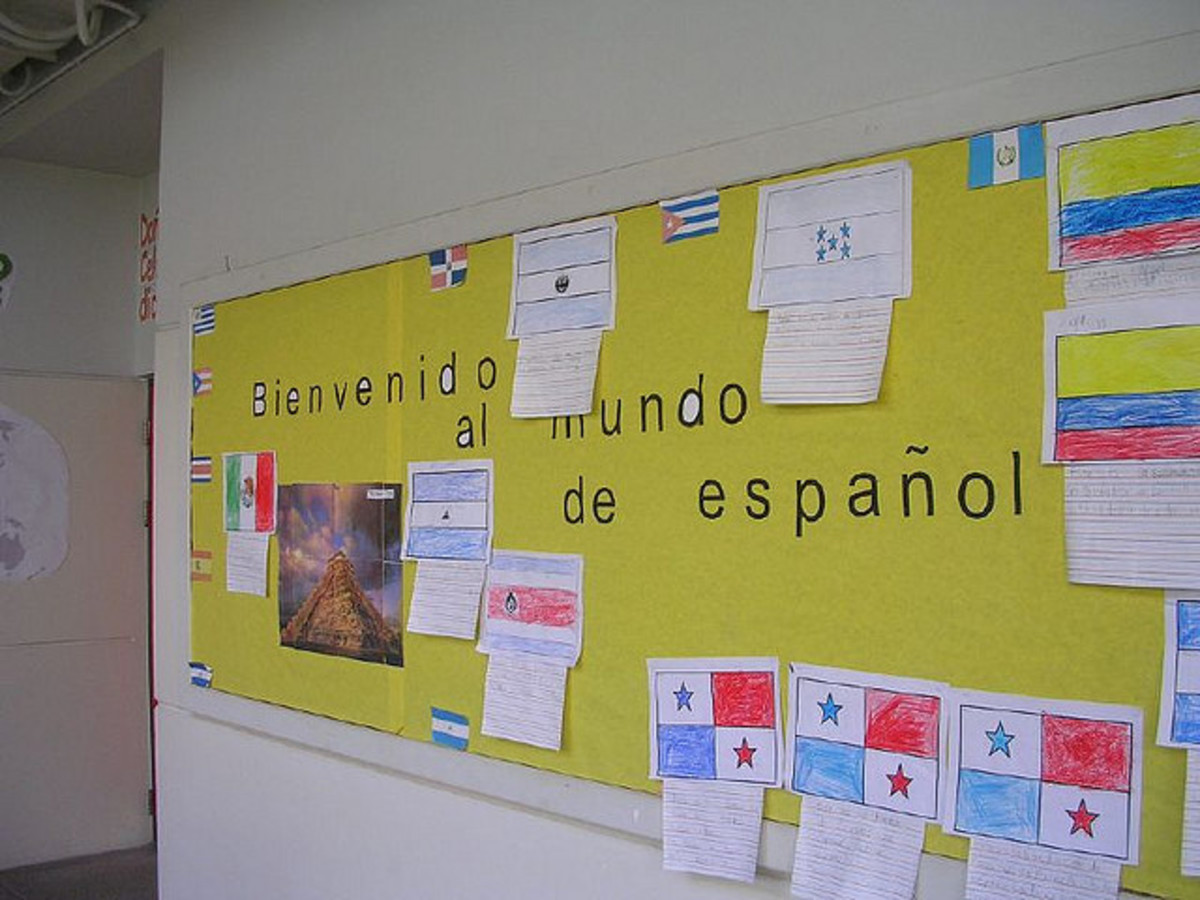Learn a Foreign Language - Tips
- English Usage, Grammar, and Style
A guide to English grammar and usage resources available on the Internet.
Language Learning for the LInguistically Challenged
Language learning is scary for many adults - but it's just another skill which with the right motivation and application anyone can attempt.
Learn some English grammar.
One of the big disadvantages for those of us under 60 is that we probably know no formal English grammar. "The dog ate my black shoe": do you know what is the object of the shoe, what is the verb? The definite article? The possessive pronoun? The adjective?
The teacher tells you that in Spanish that the adjective has to agree with the noun in number and gender she might as well be speaking double dutch because you don't know what an adjective or noun is. If you knew some English grammar the only piece of information to learn would be that Spanish nouns are masculine or feminine - and any adjectives associated with them have to be either masculine or feminine too.
Which of the following sentences are in the past imperfect, which is using the perfect tense and when do you use each tense:
I slept well
I used to sleep well.
If you truly have no knowledge of English grammar do yourself a favour and learn a bit about the parts of speech and tenses before embarking on a foreign language.

What is your motivation?
Do you wish to travel to an overseas country? Are you being sent abroad for work? Do you need to read original research in a foreign language? Understand your motivation and it will allow you to focus your efforts. If you are travelling in a country you need to hear and understand and be understood when you speak, but if you working are in a country you may also need to read and write simple emails in the language. In either case the present tense will probably do, especially with those useful words: tomorrow, yesterday, today attached.
If you need to read research papers your accent and comprehension of the spoken language is less important.
Be specific by what you are trying to achieve. I gave up French because they never taught be anything useful. I didn't have an aunt with a hat and really didn't care about the subjunctive voice. When I finally got to France I needed to learn the sentences I had never been taught such as "Which platform does the train for Lyon leave from" and "One more beer please".
Grammar is useful, and in the end to become competent in a new language you will have to learn it - but at the end of the day fronting at the hotel and saying in broken Spanish "how much room 1 night" will get you understood - even though you meant to say "Good evening, kind sir. Is there a discount tariff for an overnight stay in your deluxe suite with spa bath and queen size bed?" (rest assured if the deluxe suite is available they will try to sell it to you first - though you may have to discuss your own discount!

What to Learn
Prioritise vocabulary For most travellers and people trying to communicate in a foreign language vocabulary is key - particularly verbs. Nouns are relatively easy to pick up by pointing: verbs are a lot harder. Common verbs such as have, be, go, come are critical and often irregular. as in I have a reservation, Is this the bus to Mendoza. Know the difference between I want to go to Paris and Are you going to Paris can save a lot of confusion!
Here are some key vocabulary to learn first an eye out for and understand:
- hello/goodbye/good morning/good afternoon
- thank you/please
- cheap/expensive
- arrive/depart
- bus/train/car/plane
- hotel room/restaurant/toilet/shop
- beer/red wine/white wine/carafe/bottle/glass breakfast/lunch/dinner/meals
- Internet - this is generally fairly easy!
- close/far
- left/right/straight ahead
- 1st floor/ ground floor etc
- your nationality, country
- food/drink/menu/the bill(check)/
- how much is this
- when does
- seat/reservation/1st class/2nd class
- if relevant: vegetarian/allergic/wheat etc
Knowing how to tell time, the days of the week and to a lessor extent the day of the month and the year is critical if you are catching local transport.
Knowing the numbers to say the common amounts in the local currency helps too: I was proud that I had studied the numbers 1 to 10 in Spanish before I got to Mexico a number of years ago - unfortunately at that time the Mexican peso was a bout 2,000 to US$ so the first number I was quoted was something like "dos mill doscientos"- 2200! The ONLY thing I can read in Arabic are the numbers, close to ours, as ours a derivative, but still quite different and essential for bargaining in the market in Cairo!

How to Learn.
Regardless if you enrol in class, buy a computer/audio course or buy a book you need to practice a language to improve.
Keep a notebook and write things downs as you come across them - study it - every night. Language learning is like learning maths or science or a physical skill such as dance. You can't go to lesson 1 and 2, skip 3 and 4 and expect to pick it all up at week 5. In fact enrolling in a class once a week is useless unless you study between lessons.
Learning through different media at the same time can be helpful e.g. taking a class and buying a DVD to study at home. The more you practice the better you will get, some people get it quicker than others but anyone can learn a language if they really want to.
As soon as you get to the country don't be afraid to speak because you might make a mistake or might not be understood - just try it, talk, act, make up words - you'll be amazed how often you're understood and how quickly your language will improve!
What are yoru tips for learning a foreign language? Please drop me a line below
The Author
Lis Sowerbutts has been traveling since age 7, and has to date visited over 55 countries. She firmly believes that traveling starts at 30 and is too good to be left to the young. She speaks English, can write American if forced, struggles in Spanish and is currently murdering Portugese.









